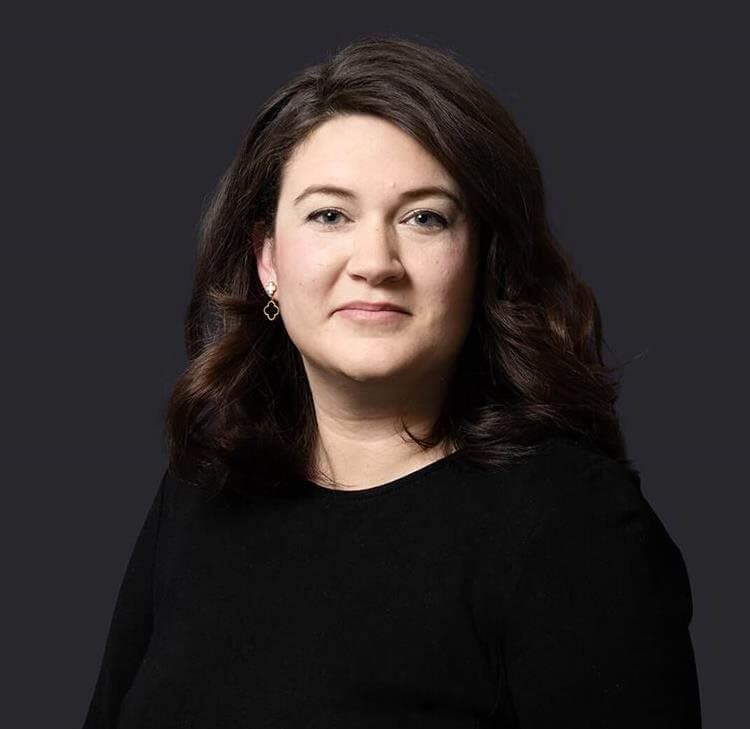School leaders have voiced their concerns over government guidance relating to pupils with special educational needs and disabilities (SEND) in a new survey by UK and Ireland law firm Browne Jacobson.
Two-thirds (65%) of the School Leaders Survey respondents said they were either “highly dissatisfied” or “dissatisfied” with existing guidance on supporting SEND pupils.
In particular, there were concerns with advice on exclusions (62% “highly dissatisfied” or “dissatisfied”) and absence management (58%). Other key issues of discontent included SEND funding (90%) and SEND policy (82%).
Creating a national set of SEND standards (68%) was regarded as the biggest priority area, followed by the previous government’s plan to provide funding for an additional 33 special schools (66%); local SEND and alternative provision partnerships (48%); standardisation of education, health and care plans (EHCPs); and amending the SEND code of practice (28%).
The survey, which was conducted in October, captures the views of more than 200 leaders – including CEOs, executive headteachers, trustees and governors – representing about 1,650 schools that are collectively responsible for nearly one million pupils across England.
The findings come as new Department for Education (DfE) data shows permanent exclusions in primary and secondary schools increased year-on-year by 35% to 4,168 in the 2023/24 autumn term. SEND pupils accounted for roughly half of exclusions, rising to nearly 90% in primary schools.
Laura Thompson, Senior Associate specialising in SEND matters at Browne Jacobson, said:
“While insufficient SEND funding continues to be a major cause of frustration for school leaders, despite the extra £1bn pledged in the Autumn Budget, the wide range of issues captured by our School Leaders Survey is another sign, if one was needed, that the SEND system requires a significant overhaul.
“The latest DfE exclusion data is a huge cause for concern – no headteacher ever wants to exclude a SEND pupil but without the wider support, many will feel they have no other option.
“The lack of consistency in approach to SEND within different areas of the country has shown itself to be a huge issue for schools, alongside SEND funding.
“The previous government took steps to implement ‘national SEND standards’ with a view to ensuring consistency in the way that children’s needs are assessed and met across the country. The change in government has likely slowed the process but this is clearly something that school leaders are still very keen to see.
“One assistant headteacher at a trust covering five different local authority areas told us they have to deal with five different processes and five different EHCP templates.
“Since the publication of the SEND code of practice in 2014, there have been questions around when – or if – a standardised template will be prepared for EHCPs but there is still no sign. For something that would, in the grand scheme of things, be a relatively straightforward change to make, it could make a significant difference to schools, local authorities and parents."
The government’s proposal to provide access to a specialised mental health professional in every school to support with SEND provision by training existing members of staff was the preferred approach by only 14% of respondents.
This was behind further investment in existing child and adolescent mental health services (CAMHS) (38%), additional funding for schools to access such support as needed (28%), and recruitment of more mental health professionals (15%).
Comments from school leaders backed up the data. The CEO of a South West-based trust called for “meaningful external agency support with SEND needs in schools,” including an “improvement in CAMHS, social care and expert agencies working with schools to improve outcomes”.
The principal of a South East-based school added: “This is a very complex issue. Getting services for children in the first place is a challenge and obtaining the funding children are so in need of is impossible.”
The School Leaders Survey, conducted in the weeks following the conclusion of Labour’s first 100 days in office, also shines a light on the wider education policy landscape.
Only three in 10 respondents said they felt positive about the impact of government policy, with half feeling neutral. Three-quarters (74%) remain dissatisfied with overall government funding.
Half of respondents felt positive about the educational prospects of their pupils in the spring survey but this has now fallen to 35%. Only one in five judge the financial prospects of their institution to be positive in light of the new government.
Nick MacKenzie, Head of Education at Browne Jacobson, added:
“We have a new government, but it appears that the sector is waiting for it to really disclose its hand by sharing the detail of its policy agenda and what it is prioritising.
“While the Education Secretary asked the sector ‘for a bit of patience’ as the government works out how to fix the broken SEND system, it is a system that has been in crisis for many years so it is understandable why school leaders want action. Our School Leaders Survey lays bare the extent of the challenges leaders face every day.
“The priorities remain broadly the same for school leaders, nowhere more so than SEND, where leaders are telling us that government policy to data is simply not working and guidance is not clear enough. Proposals such as access to specialist mental health professionals in every school could seem hollow if there is not the funding to back it up.
“Most schools want to do all they can to support pupils with special educational needs, but they need the resource to do so. Properly funded SEND provision would help to alleviate other pressure points in schools such as parental complaints and legal challenges, behaviour management, exclusions and staff recruitment and retention.
“While the additional funding allocation for SEND in the Autumn Budget is a welcome prioritisation of SEND, there is clearly much more that needs to be done at pace to support schools and pupils.”
Contact

Kara Shadbolt
Senior PR & Communication Manager
kara.shadbolt@brownejacobson.com
+44 (0)330 045 1111
You may be interested in...
Legal Update
Autumn Budget 2025 sector predictions: Education
Legal Update
SEND and pupils absent due to health needs: What you need to know
Legal Update
Ofsted confirms changes to inspection framework
Legal Update
Schools White Paper: SEND reform, behaviour changes and other expectations
Legal Update
Be prepared for the 2025-26 school year
Press Release - School Leaders Survey
Browne Jacobson’s School Leaders Survey exposes post-Covid downturn in school readiness among young children
Press Release - School Leaders Survey
Browne Jacobson’s School Leaders Survey shows exclusions and suspensions at an all-time high
Thought Leadership - School Leaders Survey
Survey shows growing dissatisfaction with government policy amidst financial uncertainty
Press Release - School Leaders Survey
Browne Jacobson’s School Leaders Survey illustrates concerns over financial resilience ahead of spending review
Legal Update
Unpacking the new guidelines for alternative provision: Practical steps for education institutions and providers
Legal Update
Exclusion appeal outcome aids clarity for schools
Legal Update
New alternative provision guidance: What it means for local authorities and schools
On-Demand
EdCon 2025: Top five takeaways
Press Release
Browne Jacobson bolsters education team with hires across key specialisms
On-Demand
Handling parent complaints against staff: Panel discussion
Legal Update - Children’s Wellbeing and Schools Bill
Attendance and children not in school
Press Release
Education predictions: What does 2025 have in store for schools, trusts and universities?
Legal Update - Children’s Wellbeing and Schools Bill
What does the new Schools Bill mean for admissions?
Press Release
Comments on the latest SEND tribunal statistics
Press Release - School Leaders Survey
Browne Jacobson’s latest School Leaders Survey illustrates need for better SEND guidance as exclusions rise
Thought Leadership - School Leaders Survey
School Leaders Survey Autumn 2024: The results are in
Legal Update
What the UK Covid-19 Inquiry means for higher education providers
Legal Update
When should a school add a pupil to its admissions register?
Legal Update
What the UK Covid-19 Inquiry means for schools
Legal Update
Changes to attendance requirements for schools
Legal Update
Mitigating the £6.2bn black hole: Are councils maximising these resources well enough?
Legal Update
SEND capacity issues leading to non-compliance
Article - School Leaders Survey
School leaders survey Spring 2024 - the results are in
Legal Update
New case on the reasonable adjustment duty for pupils in schools
Press Release
Half of school leaders think Ofsted does not have the expertise for Multi-Academy Trust inspections, according to new survey
Thought Leadership - School Leaders Survey
School leaders survey Autumn 2023 – the results are in
Article - School Leaders Survey
School leaders survey Summer 2023 – the results are in
Guide
FAQs - converting to academy status
Legal Update
Children's commissioner recommendations for SEND reform
The Children’s Commissioner, Rachel De Souza, has recently published a report “Beyond the labels: a SEND system which works for every child, every time”, which she intends to sit alongside the DfE’s SEND Review (2019) and SEND Green Paper (2022) and which she hopes will put children’s voices at the heart of the government’s review of SEND system.
Press Release
Law firm picks up record breaking sixth Education Investor Award
Browne Jacobson’s education team has been named as winner of the ‘Legal Advisors to Education Institutions’ category at the Education Investor Awards 2022 for a record sixth time.
Legal Update
Browne Jacobson’s market leading Education expertise recognised again in latest Legal 500 rankings
The new set of Legal 500 directory rankings have been published and we are proud to once again be recognised as one of the country’s leading firms advising the Education sector.
Published Article
Key steps to avoid falling foul of disability discrimination laws
The law around disability discrimination against pupils is not straightforward – but the reputational risk, let alone costs, of falling foul of the law are huge, so it’s worth upskilling staff whenever possible, as these two lawyers outline.
Press Release
Browne Jacobson’s C-suite exec level coaching team appoints two new education specialists
National law firm Browne Jacobson has grown its team behind its dedicated Space + Time executive coaching programme with the addition of two more qualified coaches who will work with clients in the education sector.
Legal Update
The Disabled Students Commission – supporting students on their journey through higher education
Schools and education authorities in England have had a duty to provide reasonable adjustments for disabled pupils since 2002. Disabled pupils have been supported in this way within the school environment but what can they expect as they continue their education journey into higher education?
Legal Update
Advocacy in Action: school places during a national pandemic
In this second Advocacy in Action update, we consider the issue of claims arising from school placements during Covid-19 lockdown.


































